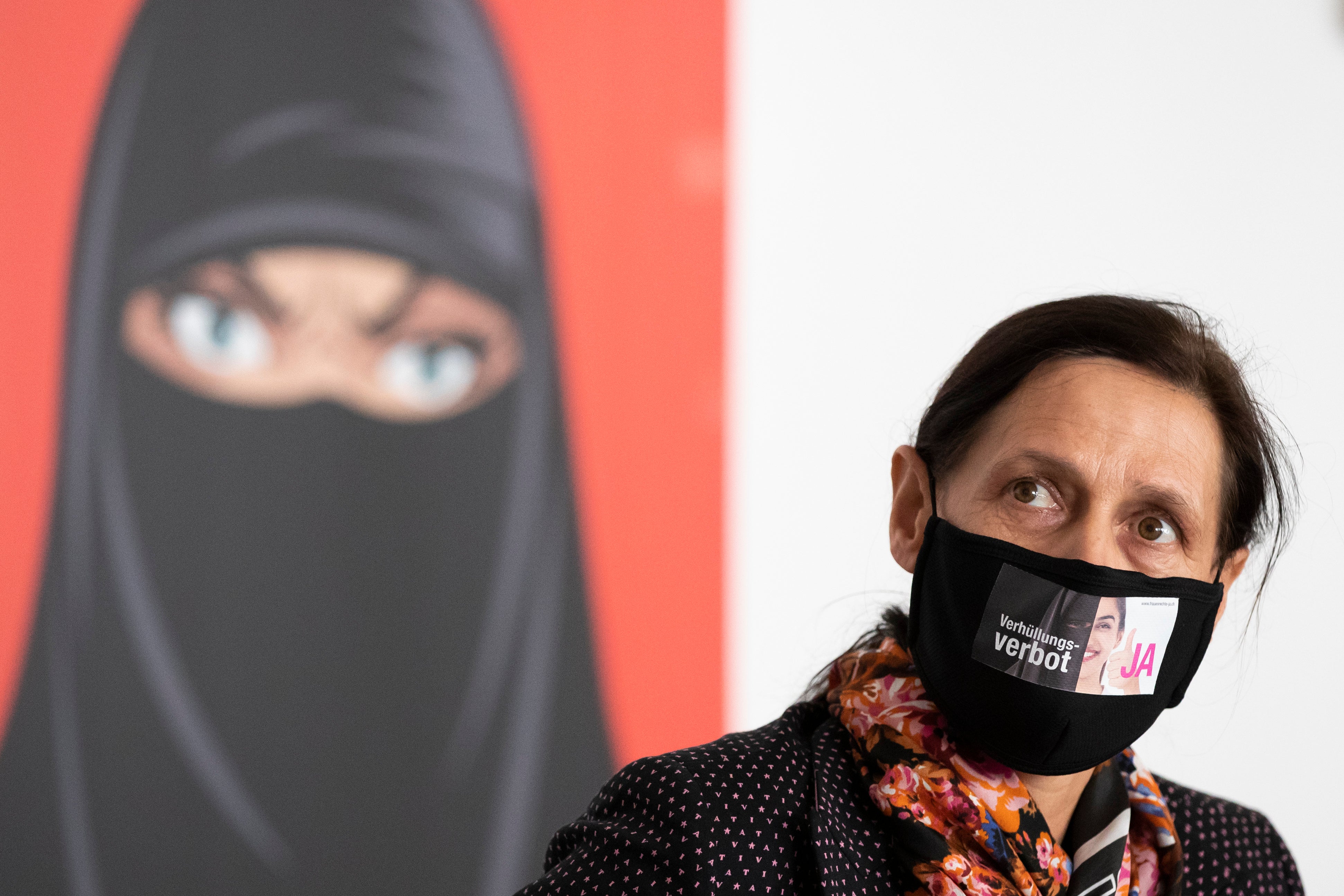Switzerland votes in favour of ‘burqa ban’
Fewer than 40 women wear a burqa or niqab in Switzerland, research shows

Your support helps us to tell the story
From reproductive rights to climate change to Big Tech, The Independent is on the ground when the story is developing. Whether it's investigating the financials of Elon Musk's pro-Trump PAC or producing our latest documentary, 'The A Word', which shines a light on the American women fighting for reproductive rights, we know how important it is to parse out the facts from the messaging.
At such a critical moment in US history, we need reporters on the ground. Your donation allows us to keep sending journalists to speak to both sides of the story.
The Independent is trusted by Americans across the entire political spectrum. And unlike many other quality news outlets, we choose not to lock Americans out of our reporting and analysis with paywalls. We believe quality journalism should be available to everyone, paid for by those who can afford it.
Your support makes all the difference.A far-right proposal to ban facial coverings in Switzerland won a narrow victory in a binding referendum on Sunday instigated by the same group that organised a 2009 ban on new minarets.
The measure to amend the Swiss constitution passed by a 51.2 to 48.8 per cent margin, provisional official results showed.
The proposal under the Swiss system of direct democracy does not mention Islam directly and also aims to stop violent street protesters from wearing masks, yet local politicians, media and campaigners have dubbed it the burqa ban.
“In Switzerland, our tradition is that you show your face. That is a sign of our basic freedoms,” Walter Wobmann, chairman of the referendum committee and a member of parliament for the Swiss People’s Party, had said before the vote.
He called facial covering “a symbol for this extreme, political Islam which has become increasingly prominent in Europe and which has no place in Switzerland”.
The Central Council of Muslims in Switzerland called the vote a dark day for the community.
“Today’s decision opens old wounds, further expands the principle of legal inequality, and sends a clear signal of exclusion to the Muslim minority,” it said.
It promised legal challenges to laws implementing the ban and a fundraising drive to help women who are fined.
The proposal predated the Covid-19 pandemic, which has required adults to wear masks in many settings to prevent the spread of infection.
Two cantons already have local bans on face coverings.
France banned wearing a full face veil in public in 2011 and Denmark, Austria, the Netherlands and Bulgaria have full or partial bans on wearing face coverings in public.
Practically no one in Switzerland wears a burqa and only around 30 women wear the niqab, the University of Lucerne estimates. Muslims make up 5 per cent of the Swiss population of 8.6 million people, most with roots in Turkey, Bosnia and Kosovo.
The government had urged people to vote against a ban.
“After the ban on minarets, a majority of Swiss voters has once again backed an initiative that discriminates against a single religious community and needlessly stirs up fears and division,” Amnesty International said.
“The veiling ban is not a measure for women’s liberation, but a dangerous symbolic policy that violates freedom of expression and religion.”
Reuters



Join our commenting forum
Join thought-provoking conversations, follow other Independent readers and see their replies
0Comments